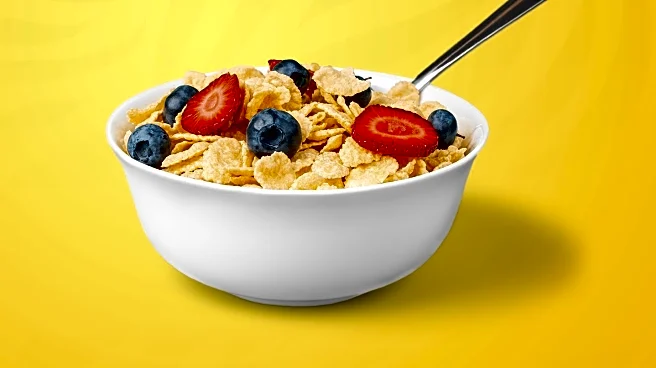What's Happening?
A recent study has highlighted that not all ultra-processed foods (UPFs) are detrimental to health, identifying eight types that can actually be beneficial. These include frozen vegetables, canned tomatoes, whole grain bread, and unsweetened Greek yogurt, which undergo processes that preserve nutrients without harmful additives. Despite the negative reputation of UPFs, they remain a staple in American diets, accounting for over 50% of daily calorie intake. The study emphasizes the importance of distinguishing between unhealthy UPFs and those that offer nutritional benefits, as they are often more affordable and accessible than fresh produce.
Why It's Important?
The findings are significant as they challenge the blanket negative perception of UPFs, suggesting that some can be part of a healthy diet. This is crucial for families seeking cost-effective and convenient food options without compromising on nutrition. The study also underscores the need for clearer food labeling and policy reform to help consumers make informed choices. As UPFs dominate grocery store inventories, understanding their varied health impacts can guide better dietary decisions and potentially reduce the risk of diseases linked to poor nutrition.
What's Next?
The study calls for food policy reform that balances nutritional goals with accessibility and affordability. It suggests that clearer definitions and labeling of UPFs could help consumers identify healthier options. Additionally, there is a push for more research into the health impacts of different UPFs, which could inform future dietary guidelines and regulations. The American Heart Association warns against overly broad definitions that might confuse consumers, advocating for nuanced approaches to food system transformation.
Beyond the Headlines
The study highlights ethical and cultural dimensions, as UPFs are often criticized for their role in health disparities. By identifying healthier options, it opens discussions on how food systems can be reformed to support nutrition security and sustainability. The findings may influence global food policies, as several countries have already taken steps to limit UPF consumption through bans and taxes.










